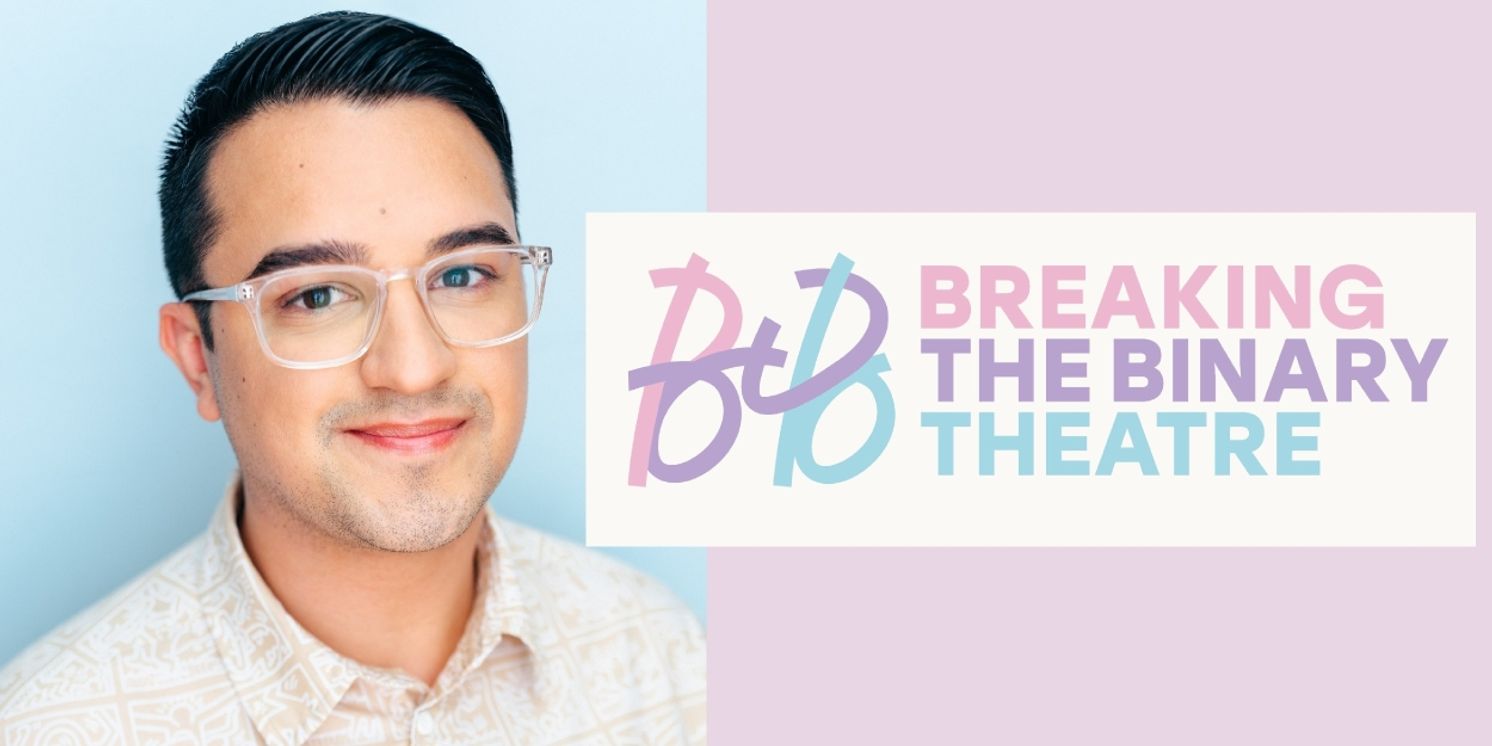How Breaking the Binary is Filling a Crucial Gap in the Theater Industry Ecosystem
The Breaking the Binary Theatre Festival will run at Playwrights Horizons from October 21-27.

Breaking the Binary, the Obie Award-winning new work development and community building hub, is launching its third annual festival this week. Helmed by George Strus, the company’s Founding Artistic Director and the recently announced recipient of this year’s Prince Fellowship, the Breaking the Binary Theatre Festival will run at Playwrights Horizons from October 21-27.
“This year, what deeply excites me is that it feels like we’re just expanding and growing,” Strus told BroadwayWorld. “I think the foundation of what we’ve built over the past two years remains the same. But this year that work feels like it’s deepening in size and scope, which feels exciting to be able to progress what it is that we’re doing while maintaining the thing that I think sets us apart and makes us unique.”
The festival spans seven evenings of work by and for by transgender, non-binary, and Two-Spirit+ (TNB2S+) artists. Its structure largely remains the same as last year, kicking off at Littlefield with an “opening night soiree,” as Strus described it, with a performance uniting artists of all different backgrounds and disciplines. From there, the festival moves to Playwrights Horizon’s Peter Jay Sharp Theater for five play readings — the culmination of five workshop processes with audiences invited at night. For the third year, the festival is ending with monologues and small scenes commissioned by 12 TNB2S+ artists. Those pieces will then be published and licensed by Broadway Licensing in 2025.
“It serves as a great, ambitious way to end the festival,” Strus said of the culminating showcase co-conceived with L Morgan Lee. But more importantly, the licensing aspect will provide TNB2S+ artists the chance to see themselves reflected in work curated specifically by and for their communities.
Strus recalled growing up and auditioning for the fall play in high school and scouring to try to find a monologue that worked for them. They remember their friends in college doing the same and finding a gap in material that felt “specific and intentional” to them. So in putting the monologues and scenes from the festival into the hands of TNB2S+ people, Strus hopes that not only will it make those artists feel more welcomed, but that the material can serve as inspiration for more work to come.
But this is only one area in which the festival and company at large are filling a crucial need to the theater industry.
“It was a gap in the ecosystem,” Strus said of founding Breaking the Binary and continuing forward. “That was sort of what innately made BTB vital to the industry, was that we were addressing a gap in the ecosystem that had yet to be filled.”
Part of that gap is providing material by and for members of the TNB2S+ communities. But in addition to the material that will emerge from the festival, Strus’ desire to fairly compensate artists and arts workers for their time is a huge part of what distinguishes Breaking the Binary within the theater industry.
Since BTB was founded, the company has paid a living wage in everything it does. Even script readers evaluating submissions for the annual festival are compensated. This year, artists in the festival are making $743, which is 29 hours at a living wage of $25.65.
“It actually helps the artist give their all to the work,” Strus said. “They’re able to actually dedicate themselves to the process and it makes the work and the product at the end of it all the better.”
That simple act of paying artists and workers what their worth provides is also helping set a better precedent for fair compensation. Artists who go on to participate in other 29-hour workshops and festivals have more ground to stand on when negotiating a higher wage because of Breaking the Binary.
“We’re enabling and empowering our artists to take the values that we imbue into what we do in hopes that they will then spread that into other processes that they get hired in thereafter,” Strus said.
The fair compensation also boosts the company’s reputation, as Strus noted, and helps ensure that actors and theater workers who participate won’t be doing the free labor (like correcting pronouns and explaining identities) that often is inflicted upon members of these communities.
“If they are the only trans person in the space or the only non-binary person in the space, there’s an amount of labor that has to come in teaching other folks about that experience - and that always goes unpaid,” Strus said.
“Theater is hard enough,” they continued. “It feels like there is a legion of people devoting their lives to this art form, to keeping this art form alive, and they’re being under-compensated for it.”
As more trans and non-binary folks make it to Broadway and are cast in other projects — and as more work is developed for the TNB2S+ communities at non-profits — Strus noted that part of Breaking the Binary’s power is in its database of TNB2S+ artists that others can rely on. The database, found on the company’s website, lists hundreds of TNB2S+ artists and arts workers ready and willing to work.
“I want to make sure BTB is always a resource to be able to make sure that those rooms and those projects are built and set up in a way that has [members of the TNB2S+ communities] at the forefront of their minds instead of as an afterthought.”
For more information on Breaking the Binary and to learn more about the Breaking the Binary Theatre Festival, visit btb-nyc.com.
Videos

